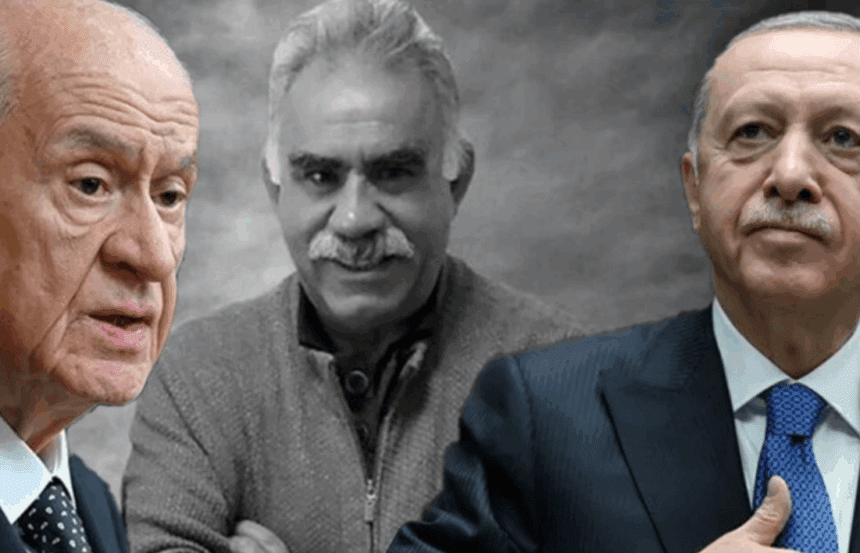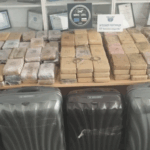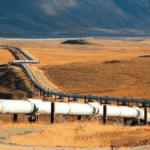Turkish President Recep Tayyip Erdoğan has indicated that his government is preparing new legislation to support renewed peace efforts with the outlawed Kurdistan Workers’ Party (PKK), citing support from the group’s jailed leader, Abdullah Öcalan, according to the state-run Anadolu Agency.
Speaking to reporters aboard his return flight from northern Cyprus, Erdoğan said that parliament would soon begin discussing reforms aimed at resolving the country’s decades-long Kurdish conflict. “As you know, the process of laying down arms has already begun,” he said, referencing a symbolic disarmament ceremony held earlier this month by PKK members in northern Iraq. “Parliamentary steps will follow shortly. We are committed to building a future without terrorism.”
The ceremony, which took place on July 11 in Sulaymaniyah, involved 30 PKK fighters publicly destroying their weapons. The event was presented as the first stage in ending the group’s 40-year armed insurgency against the Turkish state. It followed months of indirect negotiations between Öcalan and the Turkish government, reportedly initiated with Erdoğan’s approval and facilitated by the pro-Kurdish Peoples’ Equality and Democracy Party (DEM Party).
Despite criticism over the lack of concrete follow-up measures since the PKK’s gesture, Erdoğan said talks are underway to form a parliamentary commission that would monitor the process and propose relevant legal reforms. He also emphasized the role of Öcalan, who has been imprisoned on İmralı Island since 1999, saying, “İmralı has provided all kinds of support and will continue to do so. This is a crucial dimension of the process.”
In a public message earlier this year, Öcalan described the disarmament as a voluntary transition from armed struggle to democratic political engagement. He called on the PKK to pursue its goals through legal and political channels rather than armed resistance.
DEM Party Urges Legal Framework and Rights Protections
The DEM Party welcomed recent developments but stressed the need for a comprehensive legal framework and institutional guarantees. Party leaders have called for the restoration of civil rights for Kurdish citizens and warned that without democratic oversight, the process remains vulnerable to the same pitfalls that led to the collapse of previous peace efforts.
Critics of the government argue that past negotiations failed due to a lack of transparency, politicization of the judiciary, and shifts in official rhetoric during election periods.
Regional Factors: Syrian Kurds and Armed Presence
Erdoğan also addressed the role of Kurdish armed groups in Syria, particularly the U.S.-backed Syrian Democratic Forces (SDF) and its main component, the People’s Protection Units (YPG). Turkey considers both groups to be extensions of the PKK.
“The stance of the YPG can change at any moment,” Erdoğan said, highlighting the potential impact of regional dynamics on the peace process.
In contrast, Ilham Ahmed, a senior official with the Kurdish-led Autonomous Administration of North and East Syria, told BBC Turkish that disarmament is not currently on the table. She cited the continued threat of Islamic State militants and the absence of a political settlement in Syria as reasons for the SDF’s continued armed posture. Ahmed added that the SDF’s goal is to integrate into the Syrian state, not to negotiate with Ankara.
Intelligence Chief Meets with Political Parties
In an effort to expand political support for the peace initiative, Turkish intelligence chief İbrahim Kalın met with leaders of several parliamentary parties in Ankara on Monday.
Kalın began with a meeting with Devlet Bahçeli, head of the far-right Nationalist Movement Party (MHP), who had previously urged Öcalan to call for an end to armed struggle. He then held talks with senior figures from the ruling Justice and Development Party (AKP) and later met with DEM Party co-chairs Tuncer Bakırhan and Tülay Hatimoğulları.
Kalın is expected to continue consultations with other parties in the coming days, including the main opposition Republican People’s Party (CHP), the nationalist İYİ (Good) Party, and the New Path Party alliance, which includes the Future, DEVA, and Felicity parties.



